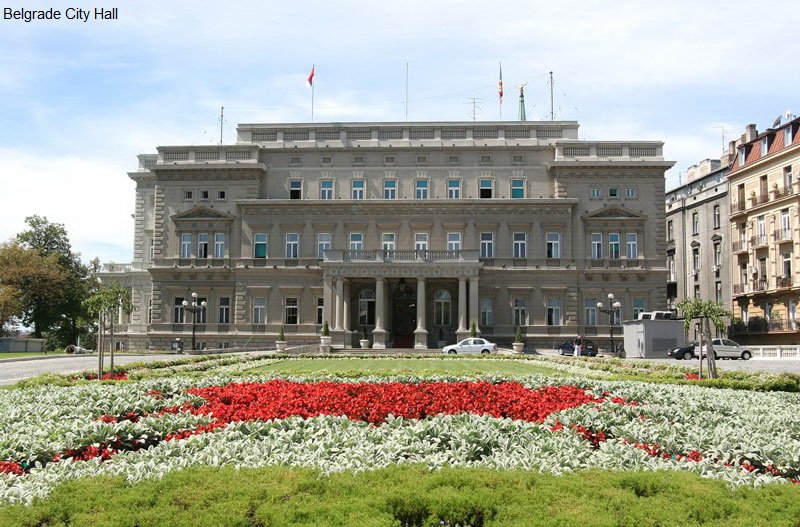Belgrade backs down on unfair rules blocking access to social housing
04 December 2014
Prompted by a recent development in the case pending before the Constitutional Court of Serbia, the City of Belgrade has decide to abolish the remaining discriminatory criterion which made it more difficult for those most disadvantaged, including many Roma, to qualify for the City’s social housing schemes.
In October 2010 the Minority Rights Center (MRC) , a Belgrade-based NGO, and the European Roma Rights Centre (ERRC) filed an initiative before the Serbian Constitutional Court challenging the constitutionality and legality of three out of eight criteria laid down in the City of Belgrade’s regulation on the distribution of social housing. The contested criteria related to the size of the applicant’s household, his or her level of education, and the number of years (s)he had been in formal employment. This particular housing programme was a part of Belgrade’s large scale project launched in 2003, aimed at building 1,006 apartments for non-profit sale and 100 apartments for social housing. By 2010 the number of planned social housing units had increased from 100 to 716 units.

The purpose of the non-profit sale scheme was to create affordable housing primarily for the employees of the City and State institutions based in Belgrade who do not have a home or property. The rationale of the social housing part of the scheme was to provide (temporary) decent housing for the low-income families who do not have a home of their own. Although the purposes of these two components were different, the City of Belgrade nevertheless set up almost identical criteria, based on some notion of ‘merit’ instead of the financial and social needs of a particular applicant. Such criteria made it almost impossible for many Roma to access social housing.
For these reasons, as well as for the fact that in 2009 a national Law on Social Housing was adopted formulating less restrictive criteria, the MRC and ERRC decided to take legal action and challenge these criteria for allocation of social housing before the Serbian Constitutional Court. In our view, the criteria were unconstitutional, contrary to the law on discrimination, and contrary to the national social housing legislation.
The criterion related to the size of the household stipulated that each family member counts for 20 points, while the maximum number of points that can be allocated is 100. This meant that families with more than five members were unfairly undercounted when determining their housing needs. Statistics show that Roma families are more likely to have more than five household members.
The ‘significance of the work place’ criterion was calculated based on the level of education criterion - the higher the education level, the higher the position on the ranking list. Similarly, the ‘employment history’ criterion was calculated based on the number of years of officially recorded employment.
These two criteria added up to 220 points out of maximum 850. Given that the available statistics show that low-income Romani families are predominantly of low educational attainment and that Roma have alarmingly low access to formal employment, for families stricken with poverty and without adequate housing these criteria were almost impossible to fulfil. Not only was it evident that these criteria are not indicators of the applicant’s vulnerability; we also argued that these two criteria indirectly discriminate against Roma, and contravened the national Law on Social Housing that does not include such conditions.
Following the submission of the initiative to the Constitutional Court, in November 2010 the City of Belgrade suddenly decided to amend the ‘employment history’ criterion by reducing the number of points from maximum 120 (3 points for each year) to maximum 40 points (1 point per year) and to abolish the ‘significance of the work place’ criterion.
In July 2014 the Constitutional Court decided to (a) dismiss the complaint about the ‘size of the household’ criterion; (b) cease the procedure with regards to the ‘significance of the work place’ criterion as no longer relevant; and (c) initiate proceedings for assessing the lawfulness of the ‘employment history’ criterion.
The Court found that it was justifiable to consider the question whether the City of Belgrade has overstepped its authority when it enacted criteria in administrative regulations not contained in the national Law on Social Housing. The underlying legal question is whether the City of Belgrade, or any other local or regional authority, has discretion to formulate any criteria for allocation of social housing they deem appropriate when such housing programmes are funded form their own funds, or whether they are still obliged to comply with the national Law on Social Housing. The reasoning of the Court suggests it will find that the city’s administrative regulations must comply with national law.
Pressed by the Constitutional Court’s decision, the City of Belgrade has now adopted a decision to abolish the remaining disputed criterion. As of 1 November 2014 the duration of formal employment will no longer be taken into consideration when making the ranking list of the applicants in need of social housing.
These kinds of discriminatory conditions on access to social housing are common across Europe, and often go unchallenged because they are enacted at a local level. This case shows that Roma can and should challenge criteria like these that keep them off housing lists.




